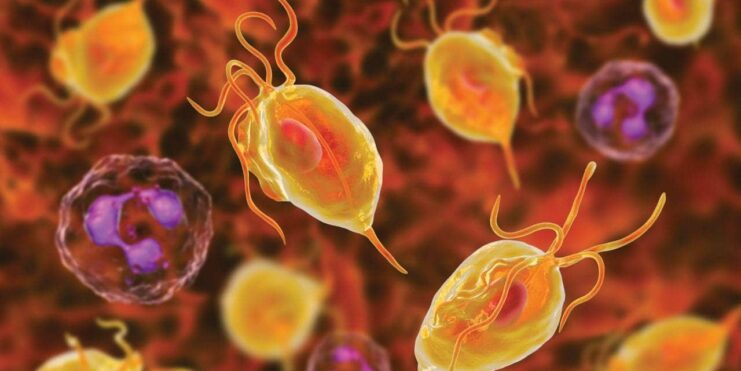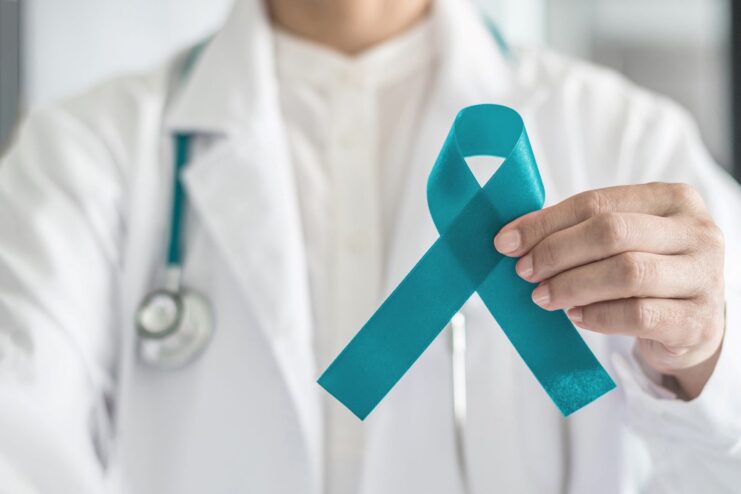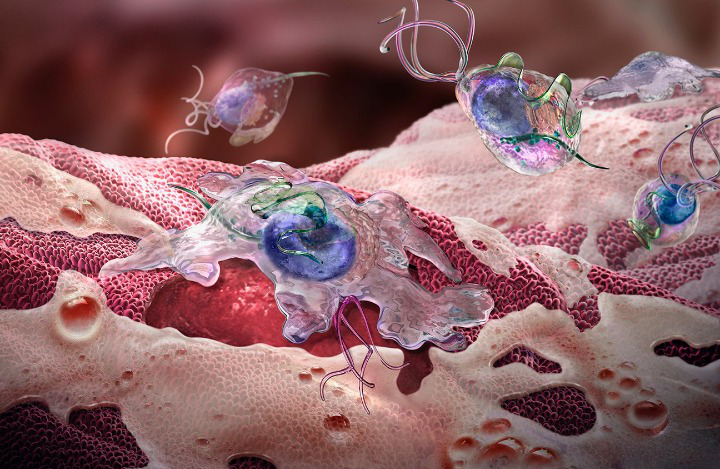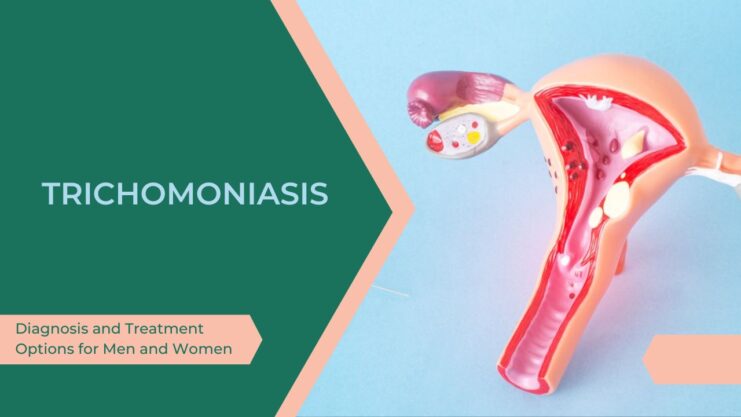Ladies, ever wondered what that yellowish-green vaginal discharge is?
And in men, what that itch and discomfort in the penis is due to?
Besides Chlamydia or gonorrhea, could it be due to trichomoniasis?
Trichomoniasis is a sexually transmitted infection caused by the parasite Trichomonas vaginalis. It is one of the most common sexually transmitted infections worldwide and is associated with a range of complications, including adverse pregnancy outcomes and increased risk of HIV transmission. While trichomoniasis is more commonly diagnosed in women, it can also affect men. Symptoms of trichomoniasis can range from none to severe and may include abnormal vaginal discharge, vaginal odor, vulvovaginal itching, burning or soreness, pain during sex, pain during urination, and lower abdominal pain.
Trichomoniasis is often diagnosed through a physical examination and laboratory tests, including a wet mount test or culture. It is treated with antibiotics, typically metronidazole or tinidazole, and both the patient and their sexual partner(s) should be treated to prevent reinfection. Practicing safe sex, including using condoms, limiting sexual partners, and getting regular testing for sexually transmitted infections, can help prevent trichomoniasis.
So why the big fuss with trichomoniasis?

Research has shown that infection with T.vaginalis increases the risk of HIV transmission in both men and women. Trichomoniasis also increases susceptibility to other STI and is strongly associated with co-infection with other STI.
In women, trichomoniasis is linked with adverse pregnancy outcomes, infertility, pelvic inflammatory disease (PID), postoperative infections and cervical tumour.
In men, untreated trichomoniasis can lead to complications such as prostatitis, epididymitis, urethral stricture disease and infertility.
What are the Symptoms?
Women:
In women, symptoms can range from none to severe pelvic inflammatory disease (PID).
- Abnormal vaginal discharge – yellow/green purulent, frothy or bloody
- Abnormal vaginal odor (musty)
- Vulvovaginal itchy, burning or soreness
- Pain during sex (dyspareunia)
- Pain during urination (dysuria)
- Bleeding after sex (post-coital bleeding)
- Lower abdominal pain
Men:
The majority of men with trichomoniasis have no symptoms. Men who do have symptoms report symptoms of urethritis which are usually intermittent and self-limiting.
These includes:
- Penile discharge
- Pain during urination (dysuria)
- Pain during ejaculation
- Urethral itch
- Urethral pain, testicular pain
- Lower abdominal pain
What is the Treatment?

Trichomoniasis can be treated with antibiotics, typically metronidazole or tinidazole. These medications are taken orally and are effective in eliminating the infection in most cases. The medication is typically taken as a single dose or over the course of several days, depending on the severity of the infection.
Both the patient and their sexual partner(s) should be treated to prevent reinfection. It is also recommended that patients be tested for other sexually transmitted infections and offered counseling and testing for HIV, given the increased risk of co-infection.
It is important to complete the entire course of antibiotics as prescribed, even if symptoms improve before the medication is finished. This will help ensure that the infection is completely eliminated and reduce the risk of reinfection.
It is also recommended that individuals abstain from sexual activity until both partners have completed treatment for trichomoniasis. This can help prevent reinfection and reduce the spread of the infection to others.
In cases where the infection is particularly severe or recurrent, additional testing and treatment may be necessary. Patients should work closely with their healthcare provider to develop an effective treatment plan for trichomoniasis.
Prevalence of Trichomoniasis
Trichomoniasis is one of the most common sexually transmitted infections worldwide. In the United States alone, there are an estimated 3.7 million new cases each year. Women are more commonly affected by trichomoniasis, with an estimated 2.3 million cases in the United States.
However, trichomoniasis is often underdiagnosed and undertreated, particularly in men. The true prevalence of trichomoniasis is likely much higher than reported, given that many individuals may not experience symptoms.
Trichomoniasis is more common in individuals who engage in high-risk sexual behaviors, including having multiple sexual partners and unprotected sex. Other risk factors for trichomoniasis include a history of sexually transmitted infections, having a new sexual partner, and having a sexual partner who has a history of sexually transmitted infections.
Risks and Complications of Trichomoniasis

Trichomoniasis is associated with a range of complications and risks, particularly in women. Pregnant women with trichomoniasis may experience adverse pregnancy outcomes, including preterm birth and low birth weight.
Trichomoniasis is also associated with an increased risk of HIV transmission, making early detection and treatment important. In men, untreated trichomoniasis can lead to complications such as prostatitis, epididymitis, urethral stricture disease, and infertility.
Other complications of trichomoniasis may include postoperative infections and cervical tumors in women. Additionally, trichomoniasis is strongly associated with co-infection with other sexually transmitted infections, including chlamydia and gonorrhea.
Early detection and treatment of trichomoniasis can help prevent these complications and reduce the spread of infection to others. Regular testing for sexually transmitted infections, including trichomoniasis, is important for sexually active individuals, especially those with multiple sexual partners or who engage in high-risk behaviors.
Prevention of Trichomoniasis
Practicing safe sex is the most effective way to prevent trichomoniasis and other sexually transmitted infections. This includes using condoms correctly and consistently during vaginal, anal, and oral sex, limiting the number of sexual partners, and getting regular testing for sexually transmitted infections.
Avoiding high-risk sexual behaviors, such as having multiple sexual partners and engaging in unprotected sex, can also help reduce the risk of trichomoniasis and other sexually transmitted infections.
Additionally, individuals who suspect that they may have been exposed to trichomoniasis should seek testing and treatment as soon as possible to prevent the spread of infection to others.
Importance of Early Testing and Treatment

Early detection and treatment of trichomoniasis is important to prevent complications and reduce the spread of infection to others. Testing for trichomoniasis is typically done through a physical examination and laboratory tests, including a wet mount test or culture.
Individuals who suspect that they may have been exposed to trichomoniasis should seek testing as soon as possible, especially if they experience symptoms such as abnormal discharge, vaginal odor, pain during sex, or pain during urination.
If trichomoniasis is detected, both the patient and their sexual partner(s) should be treated with antibiotics to prevent reinfection and reduce the spread of infection to others. It is also recommended that patients be tested for other sexually transmitted infections and offered counseling and testing for HIV, given the increased risk of co-infection.
Regular testing for sexually transmitted infections, including trichomoniasis, is important for sexually active individuals, especially those with multiple sexual partners or who engage in high-risk behaviors. Seeking early testing and treatment for trichomoniasis can help prevent complications and reduce the spread of infection to others.
FAQ
Q: Is it possible to have trichomoniasis without experiencing any symptoms?
A: Yes, it is possible to have trichomoniasis without experiencing any symptoms. In fact, many individuals with trichomoniasis do not experience any symptoms at all. This can make it difficult to diagnose and treat the infection, as individuals may unknowingly pass it on to their sexual partners.
Q: Can trichomoniasis be transmitted through oral sex?
A: Yes, trichomoniasis can be transmitted through oral sex. The parasite that causes trichomoniasis, Trichomonas vaginalis, can infect the mouth and throat as well as the genitals. Practicing safe sex, including using condoms or dental dams during oral sex, can help reduce the risk of transmission.
Q: Can trichomoniasis be cured?
A: Yes, trichomoniasis can be cured with antibiotics, typically metronidazole or tinidazole. These medications are highly effective in eliminating the infection in most cases. However, it is important to complete the entire course of antibiotics as prescribed to ensure that the infection is completely eliminated and reduce the risk of reinfection.
Q: How long does it take for trichomoniasis symptoms to appear after exposure?
A: Trichomoniasis symptoms can appear anywhere from 5 to 28 days after exposure to the infection. However, many individuals with trichomoniasis do not experience any symptoms at all.
Q: Can trichomoniasis be passed from a mother to her baby during childbirth?
A: Yes, it is possible for a mother to pass trichomoniasis on to her baby during childbirth. This can lead to complications for the baby, including premature birth and low birth weight. Pregnant women with trichomoniasis should seek early testing and treatment to prevent complications for themselves and their babies.
Q: Can trichomoniasis be prevented through vaccination?
A: Currently, there is no vaccine available for trichomoniasis. Practicing safe sex, including using condoms and limiting the number of sexual partners, is the most effective way to prevent trichomoniasis and other sexually transmitted infections.
Q: Can trichomoniasis be detected through a blood test?
A: No, trichomoniasis cannot be detected through a blood test. The infection is typically diagnosed through a physical examination and laboratory tests, including a wet mount test or culture.
Q: Can trichomoniasis cause infertility?
A: Untreated trichomoniasis can lead to complications in both men and women, including infertility. Men with untreated trichomoniasis may experience complications such as prostatitis, epididymitis, urethral stricture disease, and infertility. Women with trichomoniasis may experience adverse pregnancy outcomes, pelvic inflammatory disease, and infertility.

Conclusion
Trichomoniasis is a common sexually transmitted infection caused by the parasite Trichomonas vaginalis. While it is often asymptomatic, it can lead to a range of complications, particularly in women, including adverse pregnancy outcomes and increased risk of HIV transmission. Early detection and treatment of trichomoniasis is important to prevent complications and reduce the spread of infection to others.
Practicing safe sex, including using condoms and limiting sexual partners, can help prevent trichomoniasis and other sexually transmitted infections. Regular testing for sexually transmitted infections, including trichomoniasis, is important for sexually active individuals, especially those with multiple sexual partners or who engage in high-risk behaviors.
If you suspect that you may have been exposed to trichomoniasis or are experiencing symptoms, seek testing and treatment as soon as possible. Remember to complete the entire course of antibiotics as prescribed and abstain from sex until both partners have completed treatment to prevent reinfection and reduce the spread of infection to others.












